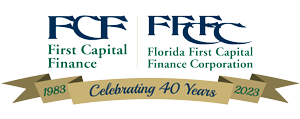- Loan Programs
- News & Media
- Our Story
- Contact Us
SBA 504 Loan Interest Rates
February 2026
25-Year Fixed Rate Standard:
5.80%
25-Year Fixed Rate Refinance:
5.80%
20-Year Fixed Rate Standard:
5.86%
20-Year Fixed Rate Refinance:
5.86%
10-Year Fixed Rate Standard:
5.67%
10-Year Fixed Rate Refinance:
5.67%
Official monthly SBA 504 effective interest rate tables can be found at Eagle Compliance LLC. 25- and 20-year term loans fund every month; 10-year term loans fund every other month. Effective interest rates are inclusive of servicing fees, which are subject to credit risk of the applicant.

 After consulting with various colleagues, the SBA's Office of General Counsel recently concluded that there are no legal impediments to the SBA's taking title to property that is subject to an open-ended indemnification provision. The SBA would not violate the Anti-Deficiency Act or the Adequacy of Appropriations Act if the Agency were to take title to 504 project collateral subject to indemnification provisions.
After consulting with various colleagues, the SBA's Office of General Counsel recently concluded that there are no legal impediments to the SBA's taking title to property that is subject to an open-ended indemnification provision. The SBA would not violate the Anti-Deficiency Act or the Adequacy of Appropriations Act if the Agency were to take title to 504 project collateral subject to indemnification provisions.